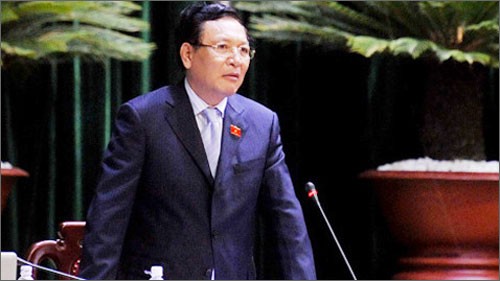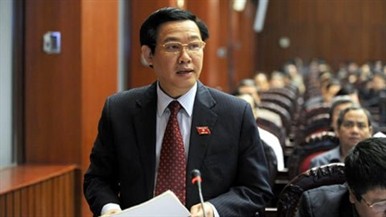Education and finance issues questioned at NA hearings
Minister of Education and Training Pham Vu Luan has promised to pay more attention to improving tertiary education quality. In response to National Assembly deputies’ question at Thursday’s Q&A session, Minister Luan said that the number of students applying to universities of forestry, agriculture, social sciences and teaching has declined in recent years: “This is an imbalance of human resources. The Prime Minister has asked relevant agencies to work out human resource development plans and provide pupils with career counseling. We will strengthen communication activities and put in place incentives to attract students to special sectors”.
 |
| Minister of Education and Training Pham Vu Luan |
Minister Luan also promised to ensure the qualification of university and college graduates: “There have been some reports claiming that students’ actual knowledge does not match the marks on their certificates. To solve this problem, the Minister has strengthened inspection of education quality in universities”.
In the afternoon, the National Assembly began questioning Minister of Finance Vuong Dinh Hue. Asked why the domestic oil prices do not decrease amidst oil price reduction in the world, Minister Hue said that 70% of petrol products for domestic consumption are imported and the rest is locally made. Hue added the management of petroleum prices are in line with a government decree on market mechanism governed by the State. Minister Hue explained the rise of electricity: “It’s inevitable as the State cannot compensate forever. The price of electricity will increase next year but not too much. Electricity to be sold for poor and low income households remain the same as now, including the 30,000 VND discount each month. For those who do not consume much electricity, the prices will be calculated lower than the average level”.
 |
| Minister of Finance Vuong Dinh Hue |
In regards to public debt issue, Minister Hue said Vietnam ’s public debts this year are safe, accounting for 54% of GDP and national debts are 41.5%. He proposed some measures: “Scenarios and roadmap should be devised to reduce overspending. Public debts management needs to be strengthened and the Department for financial debts have been established. Prediction, analysis and negotiation skills should also be enhanced to better manage debts. Efforts are needed to enhance risk management capabilities”.